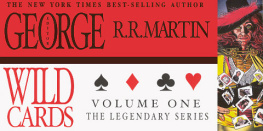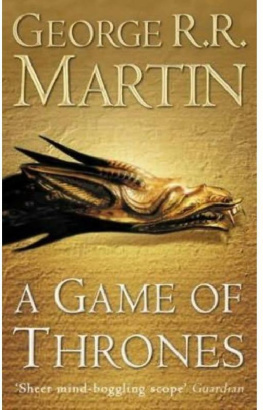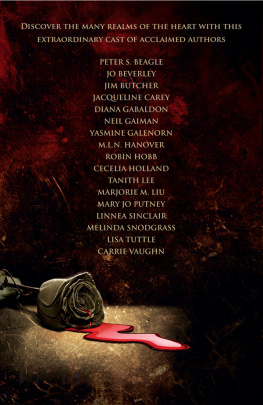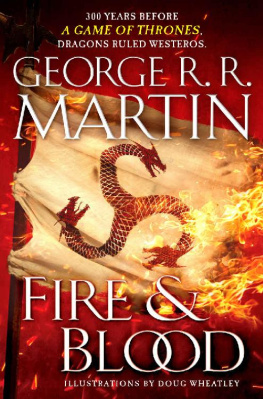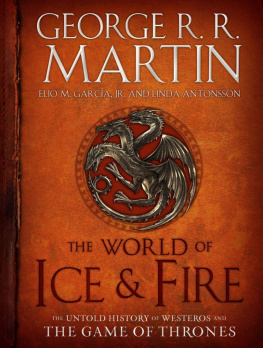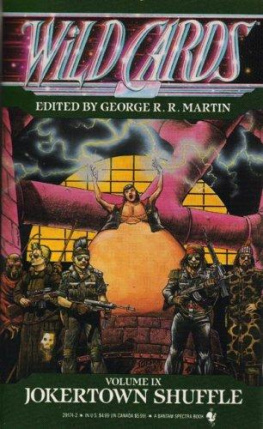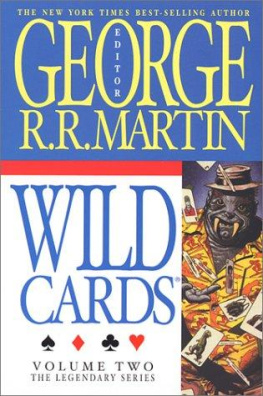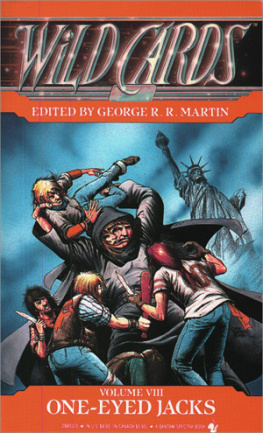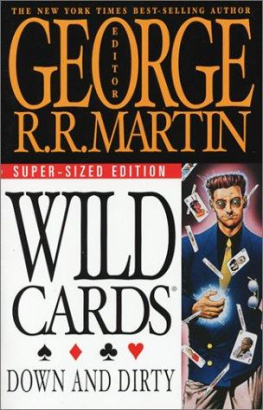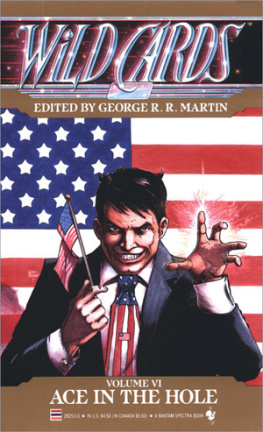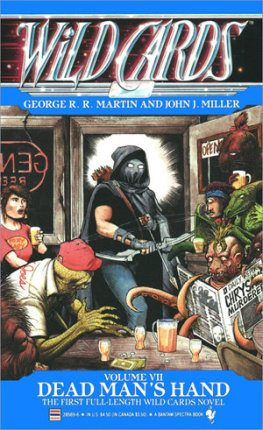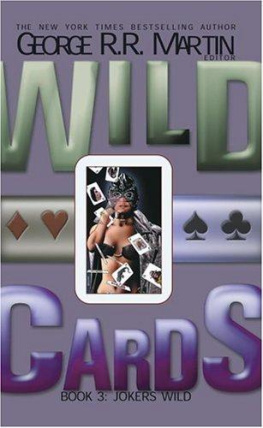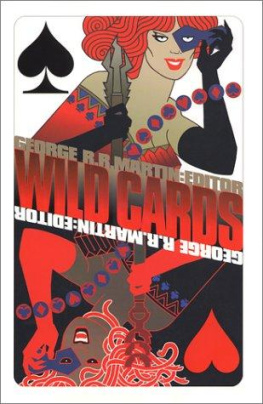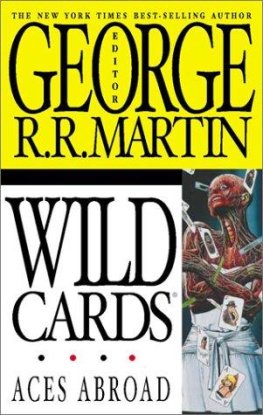George R. R. Martin - Wild Cards
Here you can read online George R. R. Martin - Wild Cards full text of the book (entire story) in english for free. Download pdf and epub, get meaning, cover and reviews about this ebook. year: 2002, publisher: ibooks, genre: Detective and thriller. Description of the work, (preface) as well as reviews are available. Best literature library LitArk.com created for fans of good reading and offers a wide selection of genres:
Romance novel
Science fiction
Adventure
Detective
Science
History
Home and family
Prose
Art
Politics
Computer
Non-fiction
Religion
Business
Children
Humor
Choose a favorite category and find really read worthwhile books. Enjoy immersion in the world of imagination, feel the emotions of the characters or learn something new for yourself, make an fascinating discovery.
- Book:Wild Cards
- Author:
- Publisher:ibooks
- Genre:
- Year:2002
- Rating:3 / 5
- Favourites:Add to favourites
- Your mark:
- 60
- 1
- 2
- 3
- 4
- 5
Wild Cards: summary, description and annotation
We offer to read an annotation, description, summary or preface (depends on what the author of the book "Wild Cards" wrote himself). If you haven't found the necessary information about the book — write in the comments, we will try to find it.
Wild Cards — read online for free the complete book (whole text) full work
Below is the text of the book, divided by pages. System saving the place of the last page read, allows you to conveniently read the book "Wild Cards" online for free, without having to search again every time where you left off. Put a bookmark, and you can go to the page where you finished reading at any time.
Font size:
Interval:
Bookmark:

Electronic book published by ipicturebooks.com
24 W. 25th St.
New York, NY 10010
www.ipicturebooks.com
No part of this book may be reproduced or transmitted in any form or by any means, electronic or mechanical, including photocopying, recording, or by any information storage and retrieval system, without permission in writing from the publisher.
eISBN 1-59019-931-6; Library of Congress Cataloging-in-Publication Data is available.
For Ken Keller, who grew from the same four-color roots as me

WILD CARDS
Editor GEORGE R.R. MARTIN was born September 20, 1948 in Bayonne, New Jersey. He began writing very young, selling monster stories to other neighborhood children for pennies, dramatic readings included. Later he became a comic book fan and collector in high school, and began to write fiction for comic fanzines (amateur fan magazines). Martin's first professional sale was made in 1970 at age 21: "The Hero," sold to Galaxy, published in the February, 1971 issue. Other sales followed.
Four-time winner of the Hugo Award, two-time winner of the Nebula Award, and six-time Locus Award winner, Martin is the author and editor of over two dozen novels and anthologies, and the writer of numerous short stories. His New York Times bestselling novel A Storm of Swordsthe third volume in his epic fantasy series "A Song of Ice and Fire"was published in 2000. Martin lives in Santa Fe, New Mexico.
"The strangest shared-world scenario ever conceived: What if an alien virus struck Manhattan in 1946, resulting in a variety of monstrous transformations (Jokers) and a scattering of wild psychic talents (Aces)? What if these new superheroes, with powers straight out of kids' comics, had to cope with McCarthyism, radical chic, and the fight for Jokers' rights?
"Martin has assembled an impressive array of writers... Progressing through the decades, Wild Cards keeps its momentum to the end... I'm looking forward to the next episodes in this saga of mutant Americana."
"Wild Cards' superheroes live in a [very] real world. There is not just super-heroism, but pain and frustration and prejudice... The effect is of a funhouse mirror held up to our world.
"We have here the writers at play, but at serious play. They have gifted us with some very good yarns. You will enjoy your reading, and you will look forward to the next volume."
Wild Cards is a work of fiction set in a completely imaginary world whose history parallels our own. Names, characters, places, and incidents depicted in Wild Cards are fictitious, or are used fictitiously. Any resemblance to actual events, locales or real persons, living or dead, is entirely coincidental. For example, the essays, articles and other writings contained in this anthology are completely fictional, and there is no intent to depict actual writers or to imply that any such persons have ever actually written, published or contributed the fictional essays, articles, or other writings contained in this anthology.

From Wild Times: An Oral History
of the Postwar Years,
by Studs Terkel (Pantheon, 1979)
Herbert L. Cranston
Years later, when I saw Michael Rennie come out of that flying saucer in The Day the Earth Stood Still, I leaned over to the wife and said, Now that's the way an alien emissary ought to look. I've always suspected that it was Tachyon's arrival that gave them the idea for that picture, but you know how Hollywood changes things around. I was there, so I know how it really was. For starts, he came down in White Sands, not in Washington. He didn't have a robot, and we didn't shoot him. Considering what happened, maybe we should have, eh?
His ship, well, it certainly wasn't a flying saucer, and it didn't look a damn thing like our captured V2s or even the moon rockets on Werner's drawing boards. It violated every known law of aerodynamics and Einstein's special relativity too.
He came down at night, his ship all covered with lights, the prettiest thing I ever saw. It set down plunk in the middle of the proving range, without rockets, propellers, rotors, or any visible means of propulsion whatsoever. The outer skin looked like it was coral or some kind of porous rock, covered with whorls and spurs, like something you'd find in a limestone cavern or spot while deep-sea diving.
I was in the first jeep to reach it. By the time we got there, Tach was already outside. Michael Rennie, now, he looked right in that silvery-blue spacesuit of his, but Tachyon looked like a cross between one of the Three Musketeers and some kind of circus performer. I don't mind telling you, all of us were pretty scared driving out, the rocketry boys and eggheads just as much as the GIs. I remembered that Mercury Theater broadcast back in '39, when Orson Welles fooled everybody into thinking that the Martians were invading New Jersey, and I couldn't help thinking maybe this time it was happening for real. But once the spotlights hit him, standing there in front of his ship, we all relaxed. He just wasn't scary.
He was short, maybe five three, five four, and to tell the truth, he looked more scared than us. He was wearing these green tights with the boots built right into them, and this orangy shirt with lace sissy ruffles at the wrists and collar, and some kind of silvery brocade vest, real tight. His coat was a lemon-yellow number, with a green cloak snapping around in the wind behind him and catching about his ankles. On top of his head he had this wide-brimmed hat, with a long red feather sticking out of it, except when I got closer, I saw it was really some weird spiky quill. His hair covered his shoulders; at first glance, I thought he was a girl. It was a peculiar sort of hair too, red and shiny, like thin copper wire.
I didn't know what to make of him, but I remember one of our Germans saying that he looked like a Frenchman.
No sooner had we arrived than he came slogging right over to the jeep, bold as you please, trudging through the sand with a big bag stuck up under one arm. He started telling us his name, and he was still telling it to us while four other jeeps pulled up. He spoke better English than most of our Germans, despite having this weird accent, but it was hard to be sure at first when he spent ten minutes telling us his name.
I was the first human being to speak to him. That's God's truth, I don't care what anybody else tells you, it was me. I got out of the jeep and stuck out my hand and said, Welcome to America. I started to introduce myself, but he interrupted me before I could get the words out.
Herb Cranston of Cape May, New Jersey, he said. A rocket scientist. Excellent. I am a scientist myself.
He didn't look like any scientist I'd ever known, but I made allowances, since he came from outer space. I was more concerned about how he'd known my name. I asked him.
He waved his ruffles in the air, impatient. I read your mind. That's unimportant. Time is short, Cranston. Their ship broke up. I thought he look more than a little sick when he said that; sad, you know, hurting, but scared too. And tired, very tired. Then he started talking about this globe. That was the globe with the wild card virus, of course, everyone knows that now, but back then I didn't know what the hell he was going on about. It was lost, he said, he needed to get it back, and he hoped for all our sakes it was still intact. He wanted to talk to our top leaders. He must have read their names in my mind, because he named Werner, and Einstein, and the President, except he called him this President Harry S Truman of yours. Then he climbed right into the back of the jeep and sat down. Take me to them, he said. At once.
Font size:
Interval:
Bookmark:
Similar books «Wild Cards»
Look at similar books to Wild Cards. We have selected literature similar in name and meaning in the hope of providing readers with more options to find new, interesting, not yet read works.
Discussion, reviews of the book Wild Cards and just readers' own opinions. Leave your comments, write what you think about the work, its meaning or the main characters. Specify what exactly you liked and what you didn't like, and why you think so.

